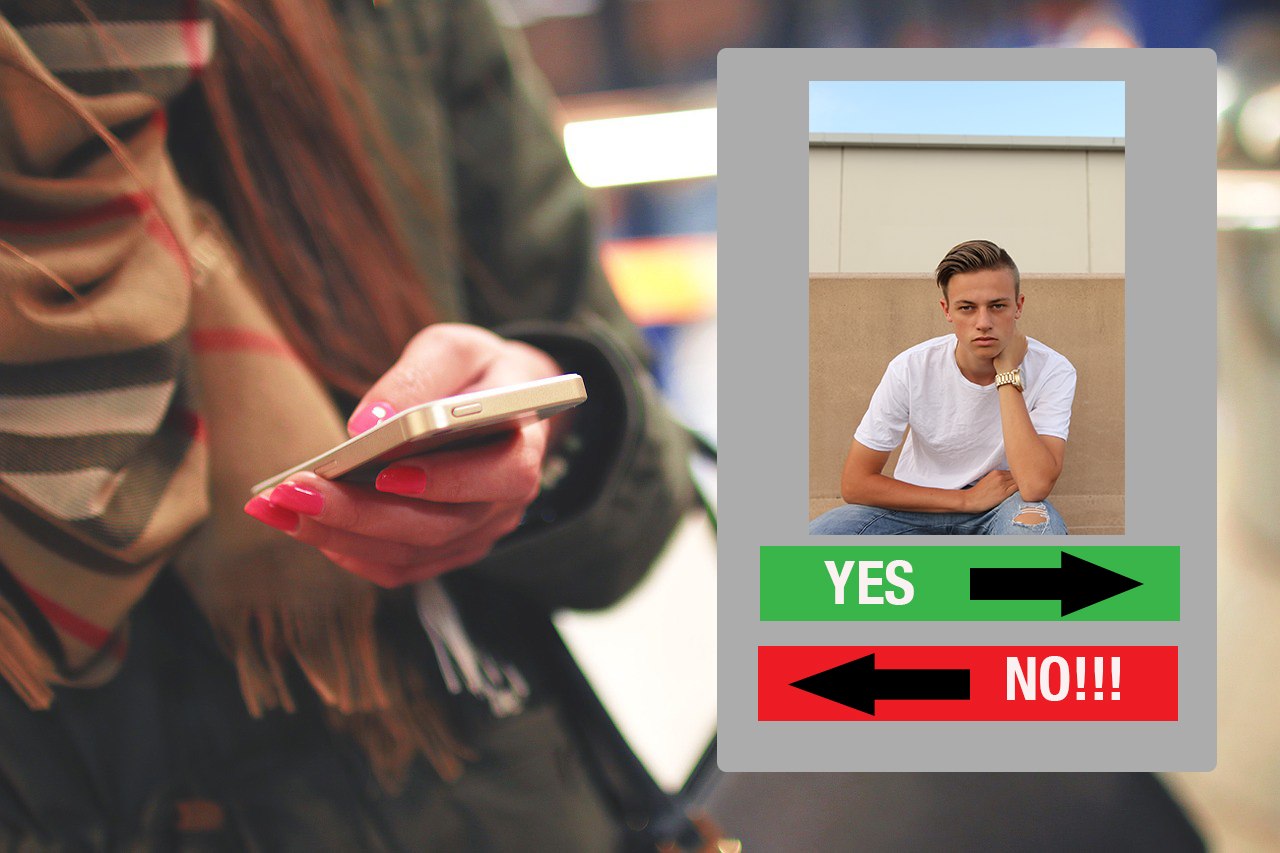Tinder. Not many people have tried it, and if they have, would they actually admit it? While this popular app has some success stories, they are often overshadowed by the many negative stereotypes that go along with it. This quick-paced dating app is based strictly on instinct and first impressions. Within seconds people decide whether or not they think a person is attractive, swiping left to reject them or right to match up and message them.
After interviewing several of my fellow classmates, I have come to the conclusion that Tinder can be described in three ways: dangerous, superficial and changing the modern relationship.
You never know who you are talking to on Tinder. There is no guarantee of the person’s profile. When asked, all of the females interviewed said that they would be nervous or scared to go on a Tinder date. Some of the men interviewed said they would be nervous but not fearful about going on a date.
“I would feel uncomfortable about letting my sister or a girl I really care about go on a date with someone they met on Tinder,” one upperclassman guy said.
“People don’t realize how dangerous it can be,” a freshman girl said.
With this said, there are some advantages to going on a date with someone you don’t know. A freshman girl who met her current boyfriend on Tinder described the experience as “relaxed” because there were “no judgments or expectations of each other” on their date.
Out of the people interviewed, everyone said that they would only go on a Tinder date if it were in an extremely public place close to or on campus. The men interviewed said they would go somewhere close but off campus, while the majority of the women said they would feel more comfortable staying somewhere on campus like the Student Center.
One of the major stereotypes Tinder possesses is that it is primarily used for sex, and it has become widely known as the “hookup app best collaboration software.” Because of this, the app is filled with an abundance of heavily filtered and often exposing selfies taken by users trying to make themselves look more physically attractive.
“Tinder is superficial…it’s all about appearance,” a freshman guy said. “You are basing your relationship just on a physical attraction when there is so much more to relationships, dating and marriage. [Physical attraction] is good to have, it’s healthy to have, but if [a relationship] is only based on that, then its not real and substantial.”
This physical puffery can have quite the opposite effect, as one sophomore guy expressed that “normally guys with more insecurities about themselves feel like they need to present their body because they don’t feel their internal self is worth it.” The same can be said of women, as well.
One freshman girl suggested that Tinder was demeaning to both men and women in the sense that it is truly objectifying to judge them simply by what they look like, showing the downfall of society and how we crave the attention and validation from others.
Overall, Tinder is changing the way people approach dating. It is seen almost as a game to be played, rather than a serious, thoughtful decision to be made. It is rare to find a Tinder relationship that is built on a solid, Biblical foundation. With this said, however, it doesn’t necessarily matter where you meet, but rather who you are.
For many, the app cushions the rejection that often comes with dating and pursuing someone. It seems to reduce the mystery and chase, taking away the middle stage between meeting and dating. There is definitely safety in taking away the person-to-person contact, but are we losing something even more valuable in the process?
Tinder is the “opposite of romance,” a freshman girl said.
While I somewhat agree with this statement, I would have to say that romance can come in many different forms, some of which stray from the traditional thoughts of “romance.” In the end, romance is what you make from the relationship and not based on where you meet.
Another freshman girl is excited that dating websites and apps are becoming more normal, while also acknowledging the challenges that this type of media can play in a relationship. “There are a lot of distractions with social media that can take attention away from the relationship,” she said.
“Some may become too dependent on using a phone rather than seeing actual people in their everyday life,” said one student who met his current girlfriend on Tinder.
Like many things in our culture, I believe Tinder is abused. It is often used for entertainment purposes, but a relationship isn’t supposed to be entertainment—it’s supposed to be taken seriously. Tinder may have started out okay, but it has steadily become corrupted by people using it for the wrong reasons.
By normalizing dating apps like this, our generation may be missing out on a traditional dating experience that supports face-to-face interaction and goes deeper than one’s physical appearance. While Tinder may work out for a select few, the bigger question to ask is this: are we trading real relationships for cheap knockoffs out of fear and insecurity? And if so, is it really worth it?
By Phoebe Huff, staff writer








